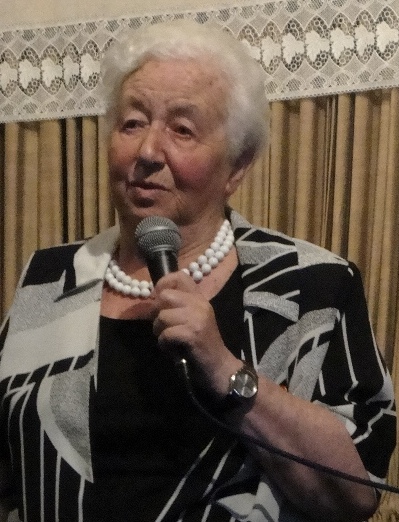The Yivo concert mounted in memory of the Vilna Ghetto was held on 22 September, a date near the September 23rd anniversary of its liquidation (in 1943). Survivors questioned find it unconscionable that the Yivo evening could not also be utilized as a forum for polite, constructive and appropriate protest at the Lithuanian government’s targeting precisely of Vilna Ghetto survivors (among other Holocaust survivors) for kangaroo ‘war crimes investigations’ that have drawn international protest.
In an ongoing campaign of defamation, a leading ‘Helsinki’ human rights association in Vilnius last December released a statement calling these survivors mass murderers (in effect for having survived by escaping the ghetto to join the anti-Nazi partisans). The statement also called for their ‘sentencing’ though none has been accused of anything specific. It has been more a campaign of defamation than a prosecution. None of the Lithuanian government officials busy enlisting naive American Jewish supporters have yet uttered a single public word in opposition to the ongoing massive public defamation.
In May 2008, several weeks after sending police to ‘look for’ two Vilna Ghetto women survivors, Lithuanian prosecutors announced that they ‘could not find’ the two — Fania Yocheles Brantsovsky (born 1922) and Dr. Rachel Margolis (born 1921). The claim was never disowned by prosecutors or politicians. As a result, antisemitic portals continue to claim that ‘the Jews are hiding their war criminals’.
Later in 2008, in response to massive international pressure, ‘part’ of the government’s first defamation campaign, against Svintsyán (Švenčionys) Ghetto survivor Dr. Yitzhak Arad was dropped, in a malevolent public statement calling on the public (‘the society’) to provide new ‘evidence’.
They were all defamed in public but none was ever cleared in public. To this day, there has been no public statement of apology or regret by any Lithuanian government official with respect to state prosecutors’ defamation of these ghetto survivors and anti-Nazi partisan heroes.

Vilna Ghetto survivor, resistance veteran, biologist and Holocaust historian Dr. Rachel Margolis: Perhaps she should be the ‘guest of honor’ at Yivo’s 22 September event to commemorate the Vilna Ghetto?
Dr. Rachel Margolis, who recently spoke about the moment in the Vilna Ghetto when Hirsh Glik decided on the melody for Zog nit kéynmol az du geyst dem letstn veg, which became the Jewish partisan hymn, is resident in Rechovot, Israel. She feels unable to return to Lithuania for fear of prosecution, harassment and defamation. Despite numerous requests, the Lithuanian embassy in Tel Aviv has failed to reach out to her. She will turn 90 in October, several weeks after the Yivo event.
The Yivo evening to mark the anniversary of the liquidation of the Vilna Ghetto is regarded in the survivor community as a unique opportunity to honor Holocaust survivor, resistance hero and historian, Dr. Margolis, alongside other Vilna Ghetto survivors and anti-Nazi resistance heroes.
Dr. Margolis is also a major contributor to Holocaust Studies. She helped establish the ‘Green House’ Holocaust museum in Vilnius, and in the 1990s rediscovered and then published in Polish the long-lost diary of the Christian Polish journalist Kazimierz Sakowicz, who was witness to many of the murders at Ponár (Polish Ponary, now Paneriai), the mass murder site near Vilna (Vilnius). The diary attested to the majority of the killers being enthusiastic local auxiliaries. The English edition, Ponary Diary, edited by Yitzhak Arad, was brought out by Yale University Press in 2005. Yale University Press was at the time superbly led by Jonathan Brent, who is now, as fate would have it, the Yivo director. Mentioning the predicament of Dr. Margolis in his public remarks Thursday would be very easy for the man who helped bring her discovery to the English speaking world back in 2005.
Incredibly, even as Lithuanian officials were busy courting Yivo in the summer of 2011, prosecutors in Vilnius were preparing their newest case, via Interpol (!) against a Holocaust survivor, Joseph Melamed. That did not prevent Mr. Melamed, head of one of the last active organizations of Holocaust survivors from Lithuania, from writing to the Yivo director to tell him what survivors think of Yivo’s plans to get into bed with the Lithuanian government. Alas, it did not inspire the Lithuanian officials doing the courting in New York to seize a remarkably timed opportunity to speak out against the targeting of Holocaust survivors when local perpetrators of the Holocaust are being honored all year as ‘freedom fighters’.